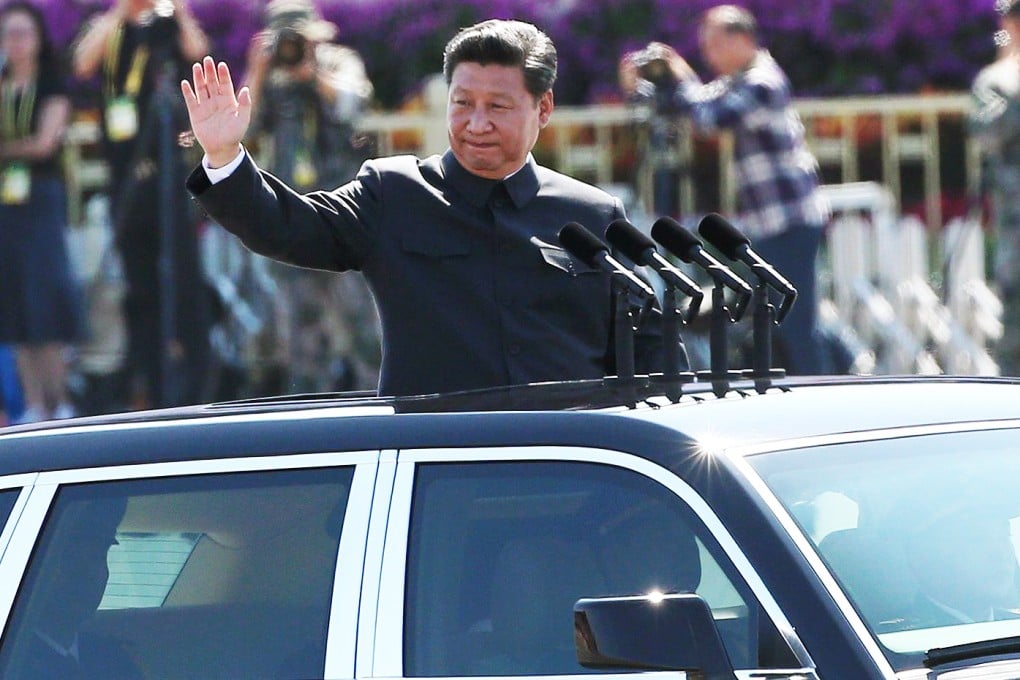Advertisement
'We Chinese love peace': Xi Jinping's war parade message moments before announcing cuts of 300,000 military personnel
South China Morning Post first reported yesterday that China would announce the massive reform and downsizing plan. It is a rare for the president to make the announcement in a speech at a military parade.
Reading Time:5 minutes
Why you can trust SCMP

President Xi Jinping today revealed he would cut the size of China's military personnel by a staggering 300,000 - twice the size of the British Army - as he lauded his country’s position as a major world power during a massive mililtary parade marking the 70th anniversary of victory over Japan.
The South China Morning Post reported yesterday that China was planning on massive reform and downsizing of the People's Liberation Army - the world's largest army which currently has 2.3 million troops, but the formal announcement was not expected at such a high profile public event.
Speaking on the Tiananmen Rostrum where Mao Zedong declared the formation of the People’s Republic in 1949, Xi said “total victory” over Japan “restored China’s status as a major country in the world”.
Advertisement
Advertisement
Advertisement
Select Voice
Choose your listening speed
Get through articles 2x faster
1.25x
250 WPM
Slow
Average
Fast
1.25x